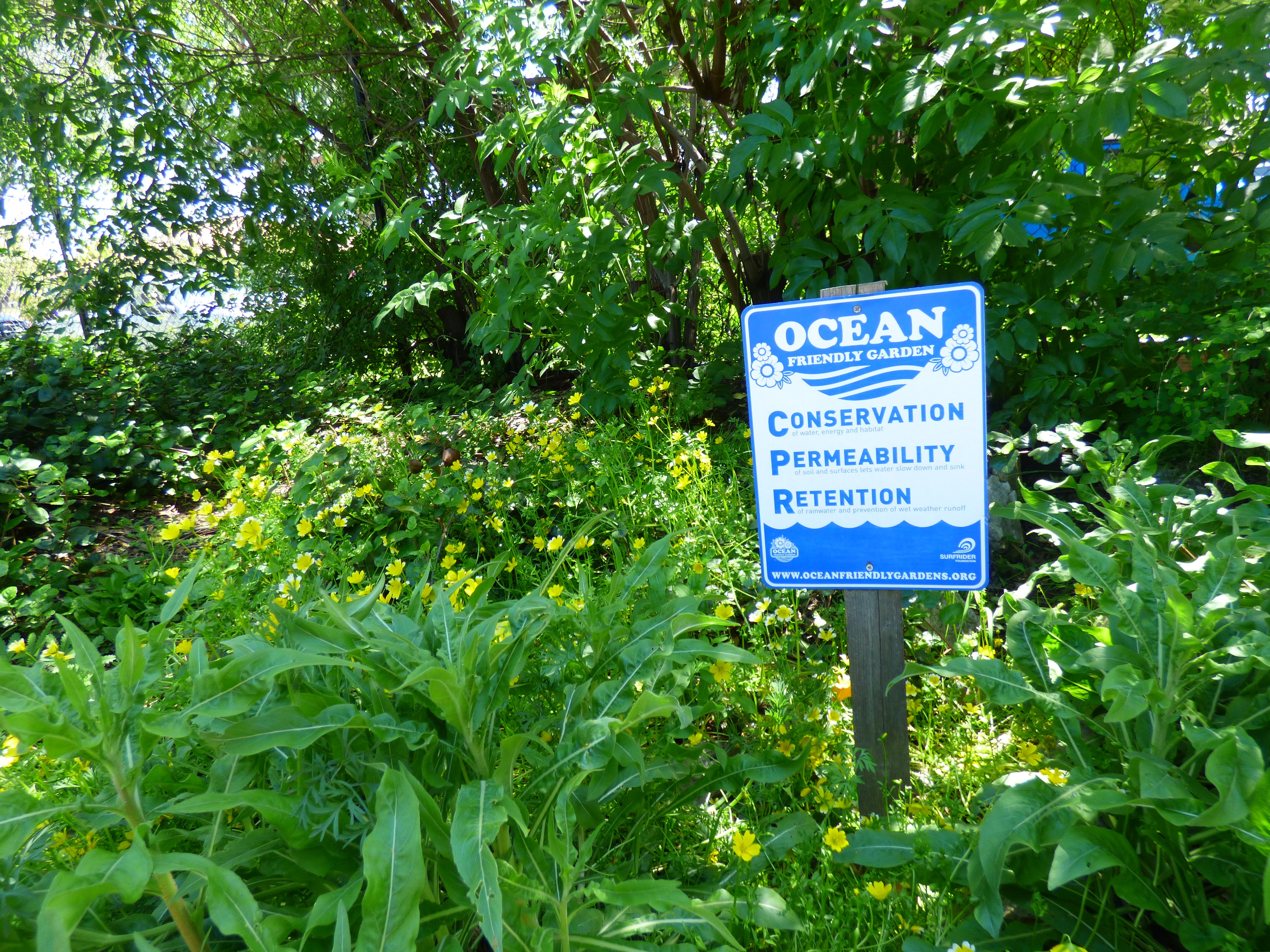
Ocean Friendly Gardens
a natural solution for stormwater pollution
Surfrider’s Ocean Friendly Gardens (OFG) program offers simple and beautiful nature-based solutions to protect clean water and support resilient coasts and communities. OFGs restore the natural functions of healthy watersheds by contouring landscapes for rainwater retention, directing water back into the ground instead of storm drains. The extensive root systems of native plants help naturally filter pollutants and sponge up extra water while restoring biodiversity to our urban landscapes.
By returning nature to our urban spaces, OFGs support climate resiliency goals by sequestering carbon, reducing air and water pollution, and avoiding climate emissions from energy-intensive maintenance practices. OFGs provide an opportunity to build equitable access to nature within neighborhoods and communities that lack green space while empowering volunteers with the skills to grow a more resilient future.

Growing more good
OFGs can be anywhere, whether you live inland or at the beach. Any yard, park, or community green space can help protect clean water by using the watershed approach to reduce pollution that harms our waterways and coasts.
OFGs work as green infrastructure to better prepare our communities for storm events, reducing local flooding and preventing runoff from overwhelming storm drain and sewer systems. Rainwater is directed back into the soil to naturally filter pollutants and recharge groundwater supplies.
Stormwater runoff is the #1 source of beach closures & swim advisories
OFG Criteria
Does your yard or community space meet our Ocean Friendly Gardens standards? If all criteria are met, you can be an ambassador for ocean-friendly gardening with an OFG yard sign and a spot on our OFG map.
Plants: support wildlife & resilient habitat
- Native plants cover at least 50% of garden or yard
- Turf grass kept to a minimum in appropriate climates and maintained sustainably
- All plants are climate-appropriate (rainfall keeps them healthy when established) or edible
- No invasive plants
Healthy, Living Soil: sponge up water & filter pollutants
- No use of pesticides, herbicides, or fungicides
- No commercial fertilizers. Compost, worm castings, or homemade organic solutions are applied if fertilizer is needed
- No landscape fabric (weed cloth) or artificial turf
- Natural mulch used as needed around plants to conserve water, rebuild soil health, and suppress weeds
Water & Irrigation: conserve water & avoid wasteful runoff
- Hand watering or high-efficiency irrigation system (drip, rotator sprinkler)
- Automatic irrigation controller (if present) has a rain shut-off device
Redirect & Soak Up Rain: prevent runoff & stormwater pollution
- Simple contours such as bio-swales, dry creeks, and basins are used to maximize rainwater retention and prevent runoff
- Rainwater from the roof is directed to landscaping, a permeable area or into rain barrels and cisterns that overflow onto permeable areas
- Existing walkways and patios direct rainwater runoff to landscaping where possible
- Pavers with gaps or permeable materials used for new hardscapes

Resources
Certify your yard as an OFG
- OFG Checklist
- To request an OFG sign for your yard email kdressendorfer@surfrider.org
Get involved
- Volunteer with Surfrider Monterey County
- Create your own Ocean Friendly Garden at home with our free downloadable guide
More resources
- Explore the OFG Map for inspiration
- Where to buy native plants near Monterey
- Explore native plants with Bloom California
- Learn about native plants on Beachapedia
- What is a rain garden?
- Redirect your downspout
